Related Research Articles

John Brewster Hattendorf, D.Phil., D.Litt., L.H.D., FRHistS, FSNR, is an American naval historian. He is the author, co-author, editor, or co-editor of more than fifty books, mainly on British and American maritime history and naval warfare. In 2005, the U.S. Naval Institute Proceedings described him as "one of the most widely known and well-respected naval historians in the world." In reference to his work on the history of naval strategy, an academic in Britain termed him the "doyen of US naval educators." A Dutch scholar went further to say that Hattendorf "may rightly be called one of the most influential maritime historians in the world." From 1984 to 2016, he was the Ernest J. King Professor of Maritime History at the United States Naval War College in Newport, Rhode Island. He has called maritime history "a subject that touches on both the greatest moments of the human spirit as well as on the worst, including war." In 2011, the Naval War College announced the establishment of the Hattendorf Prize for Distinguished Original Research in Maritime History, named for him. The 2014 Oxford Naval Conference - "Strategy and the Sea" - celebrated his distinguished career on April 10–12, 2014. The proceedings of the conference were published as a festschrift. In March 2016, Hattendorf received the higher doctorate of Doctor of Letters (D.Litt.) from the University of Oxford. Among the few Americans to have received such designation, Hattendorf remained actively engaged on the Naval War College campus after his formal retirement in 2016.
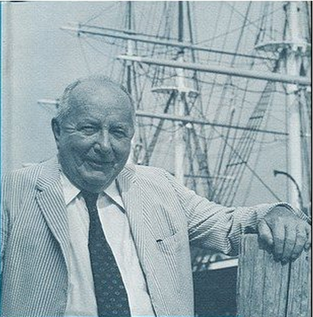
Robert Greenhalgh Albion was Harvard's first professor of Oceanic History and inspired two generations of maritime historians in the United States.
Freedom of navigation (FON) is a principle of law of the sea that ships flying the flag of any sovereign state shall not suffer interference from other states, apart from the exceptions provided for in international law. In the realm of international law, it has been defined as “freedom of movement for vessels, freedom to enter ports and to make use of plant and docks, to load and unload goods and to transport goods and passengers". This right is now also codified as Article 87(1)a of the 1982 United Nations Convention on the Law of the Sea.
James Kurth is the Claude C. Smith Professor Emeritus of Political Science at Swarthmore College, where he taught defense policy, foreign policy, and international politics. In 2004 Kurth also became the editor of Orbis, a professional journal on international relations and U.S. foreign policy published by the Foreign Policy Research Institute (FPRI) in Philadelphia, Pennsylvania.

Geoffrey Till is a British naval historian and emeritus Professor of Maritime Studies in the Defence Studies Department of King's College London. He is the Director of the Corbett Centre for Maritime Policy Studies.

Benjamin Woods Labaree was a leading historian of American colonial history and American maritime history. He was born in New Haven, Connecticut.
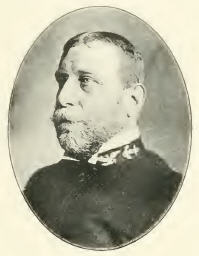
Charles Herbert Stockton was a rear admiral in the United States Navy and the U.S. Navy's first uniformed expert in international law. Stockton served as the President of the Naval War College, and later served as President of the George Washington University from 1910 to 1918
The Charles H. Stockton Chair of International Law at the United States Naval War College has its origins in the Naval War College's oldest civilian academic post. The first civilian academic at the College, James R. Soley was appointed in 1885 to lecture on international law. Dr. Freeman Snow of Harvard University gave lectures on the subject in 1894, his death in the midst of the academic program led to the appointment then Commander Charles Stockton to complete his lectures and to publish them for the use of the Navy. Stockton prepared a new edition in 1898, teaching classes in the subject. In 1901, Professoe John Bassett Moore lectured on international law and recommended that the college appoint Harvard University Law professor George Grafton Wilson as the visiting professor. Wilson lectured annually from 1901 to 1937. From 1946 to 1953, Professor Manley Hudson of Harvard regularly came from Cambridge to give the College's International Law lectures.

George Grafton Wilson was a distinguished professor of International Law during the first half of the 20th century. He served on the faculties of Brown University, Harvard University, The Fletcher School of Law and Diplomacy, and the U.S. Naval War College.
Rear Admiral James Vincent Purcell Goldrick, was an Australian naval historian, analyst of contemporary naval and maritime affairs, and a senior officer of the Royal Australian Navy (RAN). Following his retirement from the RAN, Goldrick was a fellow at the Sea Power Centre – Australia and an adjunct professor in the School of Humanities and Social Sciences in the University of New South Wales at the Australian Defence Force Academy. He was also a member of the Naval Studies Group at the Australian Centre for the Study of Armed Conflict and Society, an adjunct professor in the Strategic and Defence Studies Centre of the Australian National University and a professorial fellow of the Australian National Centre for Ocean Resources and Security at the University of Wollongong. He was a visiting fellow at All Souls College, University of Oxford in the first half of 2015, and a non-resident Fellow of the Lowy Institute from 2013 to 2018.
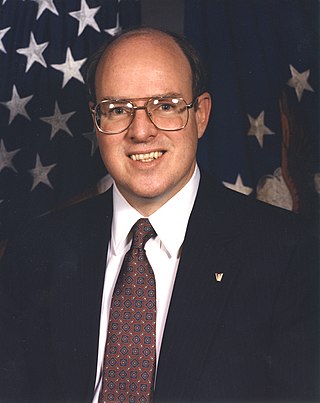
Richard P. Hallion is Senior Adviser for Air and Space Issues, Directorate for Security, Counterintelligence and Special Programs Oversight, the Pentagon, Washington, D.C. He is responsible for analysis and insight regarding the conceptualization, evolution and utilization of sensitive national technological programs and related subject areas.
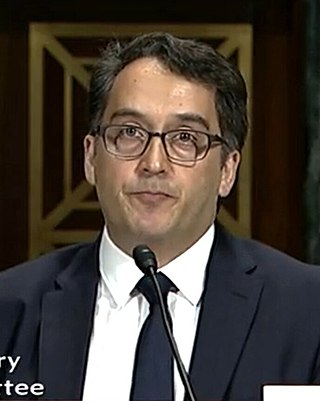
Ryan Goodman is the Anne and Joel Ehrenkranz Professor of Law at NYU School of Law and is the founding co-editor-in-chief of its website Just Security, which focuses on U.S. national security law and policy. Goodman joined the NYU faculty in 2009.

William C. Martel was a scholar who specialized in studying the leadership and policymaking processes in organizations, strategic planning, cyberwarfare and militarisation of space, and technology innovation. He taught at the U.S. Air War College and U.S. Naval War College, and performed research for DARPA and the RAND Corporation. He later become Associate Professor of International Security Studies at the Fletcher School of Law and Diplomacy, a position he held until his death in 2015.
Yoram Dinstein is an Israeli scholar and professor emeritus at Tel Aviv University. He is a specialist on international law, and a prominent authority on the laws of war. He served as President of Tel Aviv University from 1991 to 1998. Won the 2023 Israel prize for law research.

Michael N. Schmitt is an American international law scholar specializing in international humanitarian law, use of force issues, and the international law applicable to cyberspace. He is Professor of Public International Law at the University of Reading, the G. Norman Lieber Distinguished Scholar at the Lieber Institute of the United States Military Academy at West Point, and the Charles H. Stockton Distinguished Scholar in Residence at the US Naval War College.
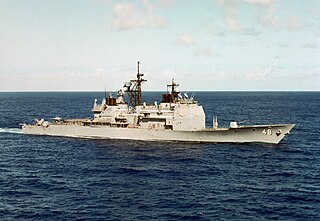
On March 13, 1986, the American cruiser USS Yorktown and the destroyer USS Caron tried to exercise the right of innocent passage under international law through Soviet territorial waters in the Black Sea near the southern Crimean Peninsula. They were confronted by Soviet frigate Ladny and border guard vessels Dozorny and Izmail.
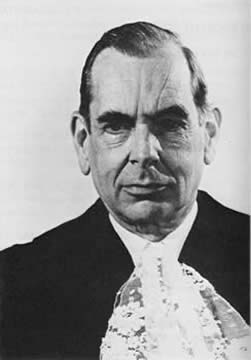
Richard Reeve Baxter was a widely published American jurist and from 1950 until his death the preeminent figure on the law of war. Baxter served as a judge on the International Court of Justice (1979–1980), as a professor of law at Harvard University and as an enlisted man and officer in the U.S. Army (1942–46,1948–54). He is noted for consistently favoring moves that enhanced the protections afforded to those injured or threatened by armed conflict. Baxter authored the 1956 revision of the U.S. Army Manual on the Law of Land Warfare and was a leading representative of the U.S. at the Geneva conferences that concluded the Protocols to the Geneva Conventions on the Laws of War. Baxter also, at the time of his death, was the preeminent scholar on the law of international waterways. He died of cancer one year into his term as a judge of the International Court of Justice.
Kenneth James Hagan is an American naval historian and retired faculty member of the United States Naval Academy and of the Naval War College's distance education faculty located at the Naval Postgraduate School in Monterey, California.
The Stockton Center for International Law is an American research center at the Center for Naval Warfare Studies at the Naval War College. The center is focused on original research and analysis in international law and military operations. Predominantly, the Stockton Center has been involved in the review of various military manuals under international law, including the Tallinn Manual 2.0, the San Remo Manual and the Woomera Manual. Additionally, the center is responsible for the International Law Studies Journal, the editor-in-chief of which is the current Charles H. Stockton Professor of International Law, Professor James Kraska. The center routinely organizes workshops and seminars on contemporary issues in international law.
Virginia Commentary is an informal title of a document, the United Nations Convention on the Law of the Sea 1982: A Commentary, providing an account of the negotiations and analysis of the United Nations Conference on the Law of the Sea convention articles. This seven-volume work was published between 1985 and 2011 with the goal of better understanding of the lawmaking process at the Third United Nations Conference on the Law of the Sea. The informal title is due to the University of Virginia School of Law, where, at the Center for Oceans Law and Policy, the commentary was put together.
References
- 1 2 "Faculty | James Kraska". www.usnwc.edu. Retrieved 2021-01-10.
- ↑ "James Kraska". U.S. Naval Institute. Retrieved 2021-01-10.
- 1 2 3 School, Harvard Law. "James Kraska | Harvard Law School" . Retrieved 2021-01-10.
- ↑ "James Kraska". The National Bureau of Asian Research (NBR). Retrieved 2021-01-10.
- ↑ "Yeosu Project, 여수국제아카데미". 여수국제아카데미. Retrieved 2021-01-10.
- ↑ "James's Kraska's CV or Resume" (PDF). United States Naval War College.